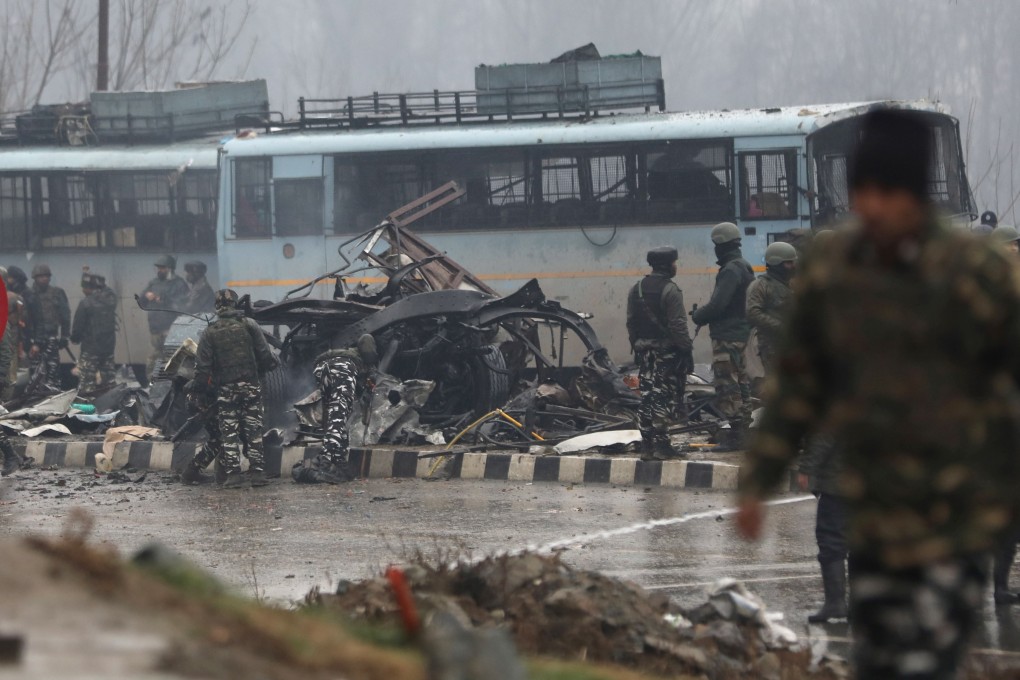What ‘Wuhan spirit’? Kashmir suicide attack reopens Modi’s China wound
- Pakistan-based group’s claim of responsibility poses foreign policy challenge to Indian prime minister
- Questions raised on claims of a ‘reset’ in relations following the summit meeting in Wuhan

In the deadliest ever attack in the region, over 40 Indian personnel were killed and many injured in the province’s Pulwama district on Thursday, when a suicide bomber targeted a convoy of 78 vehicles carrying the troops with a car bomb packed with more than 350kg of explosives.
Pakistan-based terrorist group Jaish-e-Mohammed, which claimed responsibility for the attack, has been a bone of contention between China and India for years.
India has been trying to get Jaish chief Masood Azhar – who is allowed to travel and preach freely in Pakistan – listed as a United Nations-designated terrorist, but has been repeatedly blocked by Pakistan’s staunch ally, China. Since 2017, China has kept the listing of Azhar on “technical hold” citing “lack of consensus” in the UN sanctions committee.